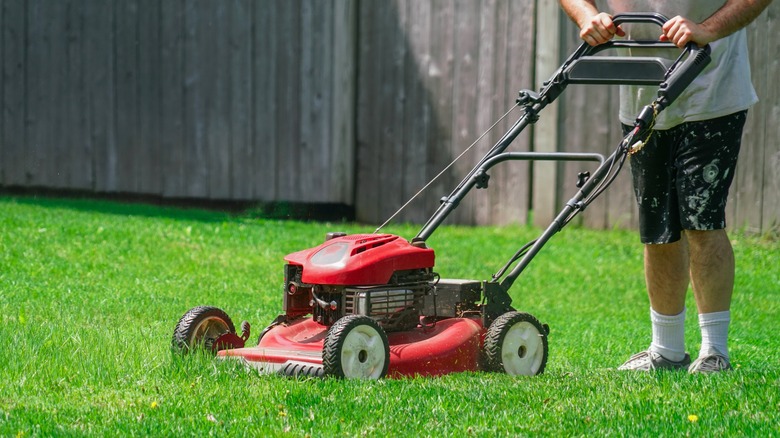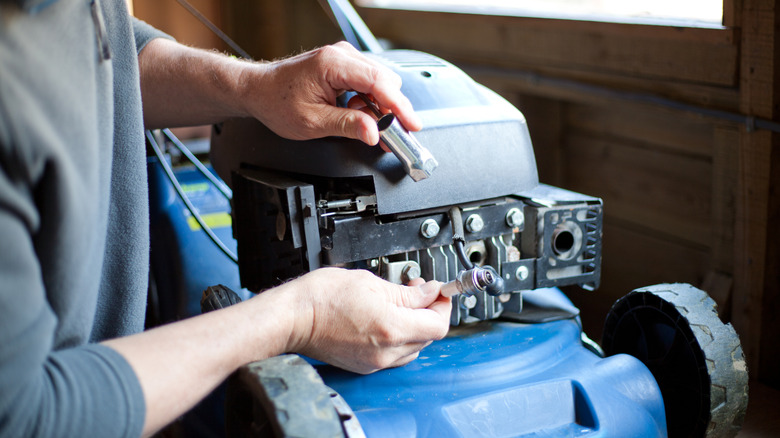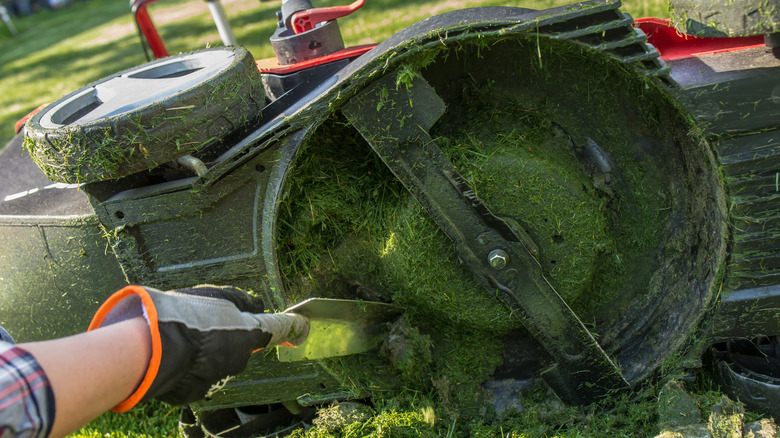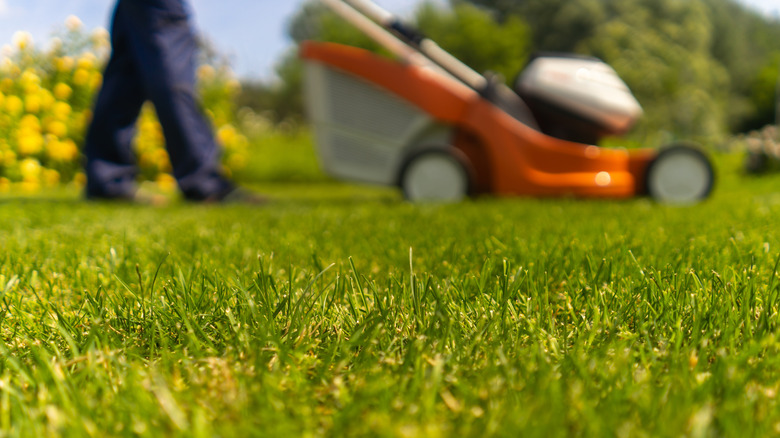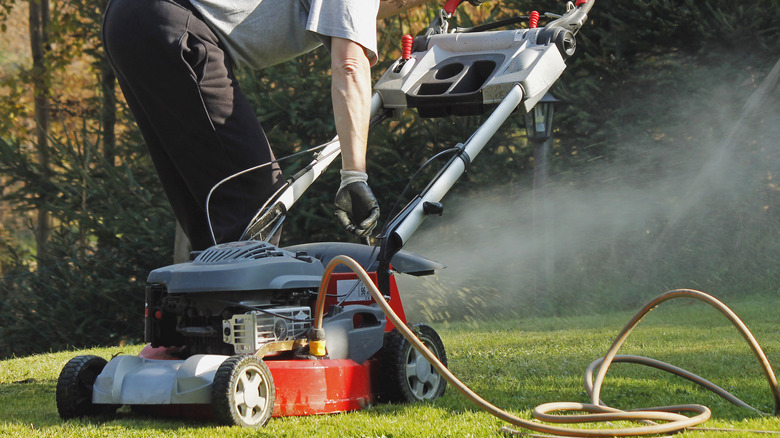Prevent Lawn Mower Damage With These Simple Tips
Your lawn mower represents an investment in both money and lawn care capabilities. Proper maintenance and upkeep are important for its performance. Ignoring routine care can lead to common, but preventable, problems like uneven cutting, engine strain, and wear that will shorten your mower's lifespan. Most of this damage can be avoided with simple practices that take just a small amount of your time. Going beyond the basic maintenance is a great way to prolong the life of your mower and save you costly repairs or replacements in the future.
A poorly kept mower does not just affect the machine itself; it will affect your lawn health through bad cuts that can leave grass vulnerable to disease. Clogged decks can scatter clipping unevenly, while dull mower blades tear through your grass instead of cleanly slicing it. The engine itself is often the most neglected, and small issues like dirty air filters or old oil will gradually cause some major damage. If you have been neglecting your mower, it might be good to stop and clean your lawn mower from top to bottom first. Then, by using some proactive measures, you will extend the life of your lawn mower, keep a healthier lawn, and even save a little money.
Essential lawn mower tune-up needs
Seasonal tune-ups are necessary to improve the lifespan of your mower. There are three systems you should pay attention to the most: engine lubrication, air filtration, and ignition. Start with an oil change using the manufacturer's recommended grade. This will flush out metal particles or byproducts accumulated during regular use. Next, get a new air filter. Clogged filters force your mower's engine to work harder, increasing fuel consumption and heat buildup. Finally, it is important to replace your lawn mower's spark plugs annually. This makes sure that the mower will reliably start every time and helps the overall engine efficiency.
These three things all work together to prevent damage. Fresh oil reduces engine friction that could lead to overheating and warped components. A clean air filter keeps the proper air-to-fuel ratio intact, and new spark plugs keep your mower from wasting fuel or misfiring the engine. Getting all of these things done together, usually during early spring, creates a foundation for the mowing season ahead. Try to keep the service consistent year after year, as these regular tune-ups will be cheaper in the long run compared to a complete engine overhaul when an ignored mower eventually breaks.
Mower deck maintenance and cleaning
The part of your lawn mower you definitely aren't cleaning enough is the deck, and it requires more attention than other components due to its constant exposure to grass, dirt, and moisture. Installing a dedicated deck wash port, if your mower does not have one, helps provide an easy way to clean up after every use. You will need to connect your hose to the fitting and run the engine. The motion and water spray will remove most debris without a lot of elbow grease. For a deeper cleaning, which should be done once a month during peak mowing season, tilt the mower up and use a putty knife to scrape off any caked-on grass. Follow this up with a stiff brush and some mild detergent to remove the remaining residue.
Rust prevention is important to keep in mind as well. After cleaning and drying, apply a thin coat of synthetic spray to the underside to create a protective barrier. Make sure to inspect your deck for cracks or damage that could affect its performance. The blade spindle area should also be checked regularly. Look for loose or stuck bearings and lubricate them according to the manufacturer's recommendations. For riding mowers, check the deck level periodically to make sure you are cutting at an even level, adjusting as needed. These little things might seem time-consuming, but they will pay off in terms of the overall performance of your mower.
The power of proper mowing timing and frequency
Adjusting when and how often you mow can provide benefits for both your mower and lawn. Waiting until later in the morning, after the dew has evaporated, prevents moisture buildup that could lead to clumping under the mower's deck. This moisture can be a major cause of corrosion and mechanical strain. Mowing more frequently with the simple "one-third rule" reduces the load on your engine and minimizes debris. This keeps the mower's blades sharper while preventing excessive clipping that can clog up the chute.
Consistent mowing at the right time will help prevent the stress to your grass that can occur with infrequent, drastic cuts. This also creates less resistance and reduces friction against the mower's blades as dry grass will cut more cleanly. If you have a larger property, alternating mowing patterns between sessions distributes wear on your lawn and mower evenly. Simple scheduling adjustments require no extra tools or purchases and can deliver measurable improvements in your mower's lifespan and cutting performance.
Small mower habits with excellent long-term payoffs
Other than routine maintenance, there are practices that can help extend your mower's lifespan. Fuel management is important. Always use fresh gasoline that is not more than 30 days old. During the wintertime, either drain the fuel system completely or add a fuel stabilizer and run the engine for about five minutes to distribute it throughout. Battery maintenance is equally important for electric mowers. Store batteries in a cool, dry place in the off-season and never let them just sit on the charger all the time.
Develop the habit of quick inspections before every mowing. Double check the oil and fuel level, examine the blades, check all the safety features, and even look at the wheels. Listen for unusual noises that may indicate a developing problem. When storing your mower long-term, clean it thoroughly, apply protectants for metal surfaces, and cover it with a breathable fabric. If you have a riding mower, make sure all the tires are properly inflated or consider putting it on blocks to take weight off the tires during storage. These practices, combined with proper routines, will help keep your mower operating like new for many seasons.
